Responding to a Pandemic
MIT School of Science contributes to the study of Covid-19
In March 2020, in response to the rising threat of the Covid-19 pandemic, MIT suspended its on-campus instruction and moved to remote learning. MIT’s leadership focused on preserving the academic continuity for MIT students while coalescing the expertise of our researchers to address the pandemic. In the MIT School of Science, many researchers refocused their priorities to address Covid-19 investigations and have actively sought out collaborations to develop innovative solutions.
The MIT School of Science has played a pivotal role in researching the virus' basic biology and potential vaccine treatments. Our researchers have also pursued the development of rapid testing and diagnosis, while addressing the pandemic's socioeconomic impact on our mental health and on the planet.
Highlights
MIT Now
MIT Now
Adapting to COVID, keeping connected
Visit now.mit.edu for all the latest updates on policies and procedures. MIT is asking its community to: - Stand with the Science (Be informed by expertise and grounded in science as we jointly seek to meet this moment.) - Work the Problem (Follow the MIT policies, practices, and protocols designed to protect ourselves and others from Covid.) - Model the Solution (Join us in modeling solutions as we do our part to stop the spread – at MIT and beyond.)
3Q with Phillip Sharp
MIT School of Science discoveries that enabled RNA vaccines for Covid-19
3Q with Phillip Sharp

The mRNA vaccine story begins with Institute Professor Phillip A. Sharp’s discovery of split genes and spliced RNA that took place at MIT in the 1970s — a discovery that would earn him the 1993 Nobel Prize in Physiology or Medicine. Sharp comments on the long arc of scientific research that has led to this groundbreaking, rapid vaccine development — and looks ahead to what the future might hold for mRNA technology.
CRISPR COVID test
CRISPR COVID test
CRISPR comes to COVID: a pandemic pivot and the push for a simple coronavirus test
MIT professor and Sherlock Biosciences co-founder Jim Collins predicts rapid progress on that front from a new technology — called “INSPECTR” — that would use synthetic biology methods to make a test on a simple paper strip. "In a matter of a small number of months," Collins says, the company "will be in a position to introduce an INSPECTR-based test for COVID-19."
COVID-19 Heroes
COVID-19 Heroes
School of Science staff members recognized for extraordinary efforts during the Coronavirus crisis.
In the School of Science, many staff members have donned capes that many do not even realize they have put on. But their peers have noticed. These heroes’ extraordinary efforts have helped make the transition during COVID-19 easier for their colleagues and work groups at MIT. The School of Science would like to recognize several staff members wearing capes, nominated for being a COVID-19 hero. Teamwork is essential for ensuring the school runs as smoothly as possible given the unusual circumstances. Despite physical distancing, it is rewarding to see the MIT community uniting to support each other.
MIT never stops moving
MIT never stops moving
The MIT community fights Covid-19 -- including researchers in the School of Science working on prevention, treatment, and impact of the disease.
Your browser does not support video embeds, please follow the link below to watch the video.
https://www.youtube.com/embed/tOHN9dQUGb8?feature=oembed&controls=1&hd=1&autohide=1&showinfo=0&modestbranding=1&rel=0&color=whiteBrain effects
How could Covid-19 and the body’s immune response affect the brain?
Brain effects
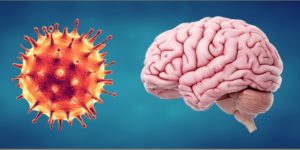
Though the most immediately threatening symptoms of Covid-19 are respiratory, neuroscientists are intently studying the pandemic from the perspective of the central nervous system. Clinical research and case reports provide mounting evidence of impacts on the brain.
Student engagement
Computational thinking class enables students to engage in COVID-19 response
Student engagement

Nearly 300 students join an open course that applies data science, artificial intelligence, and mathematical modeling using the Julia language to study COVID-19. “Everyone at MIT wants to contribute,” says Department of Mathematics Professor Alan Edelman. “While we at the Julia Lab are doing research in building tools for scientists, Dave and I thought it would be valuable to teach the students about some of the fundamentals related to computation for drug development, disease models, and such.”
Neuroscientist on the frontlines
Neuroscientist on the frontlines
Covid-19 calls Picower physician-scientist to assume another role: Front-line respiratory care
As both a neurologist who sees patients at Massachusetts General Hospital and a Picower Clinical Fellow conducting Alzheimer’s disease clinical studies at MIT, Dr. Diane Chan already has two demanding jobs. But as eastern New England’s need for Coronavirus care surged in late March, she volunteered to take on a third by joining the first wave of non-Internal Medicine doctors to be trained to evaluate patients in MGH’s respiratory illness clinics. “I’m grateful that I have skills to contribute during this time when the hospital needs our help and patients need our help,” Chan says.
Improving testing
MIT scientists explain the current state of COVID-19 testing, and how a CRISPR tool may help solve the supply problem.
Improving testing
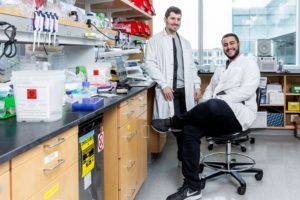
Q: What kind of COVID-19 test are you developing now? A: We are working on a nucleic acid-based test that does not require complex instrumentation, rapidly returns results (with a goal of under one hour), and can be performed at a point-of-care location without trained professionals. We hope to accomplish this using a combination of techniques. First, we are incorporating isothermal amplification technologies, which, unlike current PCR-based tests, do not require intricate heating and cooling to operate. We are combining this with our CRISPR-based diagnostics, allowing for sensitive detection and readout in a simple visual format, akin to a pregnancy test. We hope that this test will significantly lower the barrier for accurate diagnosis and provide another approach for COVID-19 surveillance.
Coronavirus blockers
An experimental peptide could block Covid-19
Coronavirus blockers
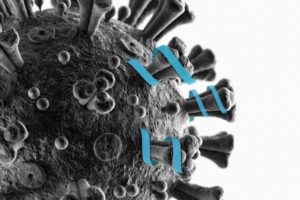
In hopes of developing a possible treatment for Covid-19, a team of MIT chemists has designed a drug candidate that they believe may block coronaviruses’ ability to enter human cells. The MIT team reported its initial findings in a preprint posted on bioRxiv, an online preprint server, on March 20. They have sent samples of the peptide to collaborators who plan to carry out tests in human cells.
Repurposing drugs to treat COVID-19 patients
Repurposing drugs to treat COVID-19 patients
A stopgap measure to treat respiratory distress
“If this were to work, which I hope it will, it could potentially be scaled up very quickly, because every hospital already has it in their pharmacy,” says Michael Yaffe, a David H. Koch Professor of Science at MIT. “We don’t have to make a new drug, and we don’t have to do the same kind of testing that you would have to do with a new agent. This is a drug that we already use. We’re just trying to repurpose it.”
The Team
-
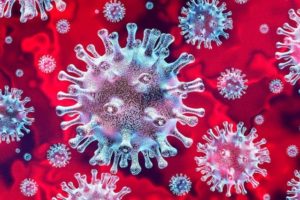
MIT's COVID-19 Website
Read the latest policies, procedures and advice regarding the Institute's response to COVID-19
-

MIT Medical
The latest tips and advice as well as tracking of COVID-19 among the MIT community
-

MIT News
The latest COVID-19-related news from MIT.
-

MIT Alumni Association
The latest for alums and how to help.
-

MIT Human Resources
Thank you messages between and resources for the MIT community.
-
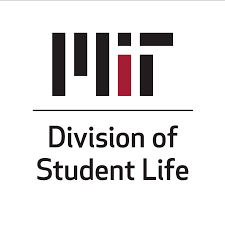
MIT Student Life
Support for and effects on students
-

MIT Brain and Cognitive Sciences
The latest from BCS.
-
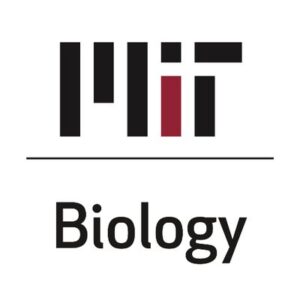
MIT Biology
The latest from Biology.
-
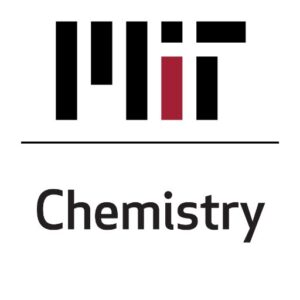
MIT Chemistry
The latest from Chemistry.
-

MIT Earth, Atmospheric and Planetary Sciences
The latest from EAPS.
-

MIT Mathematics
The latest from Math.
-
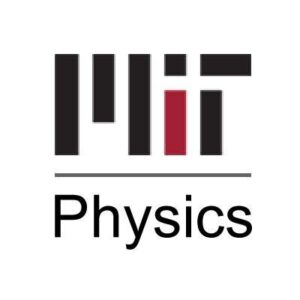
MIT Physics
The latest from Physics.
-

MIT Kavli Institute for Astrophysics and Space Science
The latest from Kavli.
-

Laboratory for Nuclear Science
The latest from LNS.
-
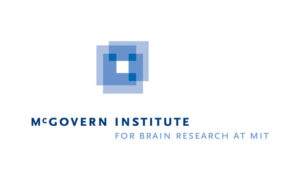
McGovern Institute for Brain Reseaarch
The latest from McGovern Institute.
-

Picower Institute for Learning and Memory
The latest from Picower.
-
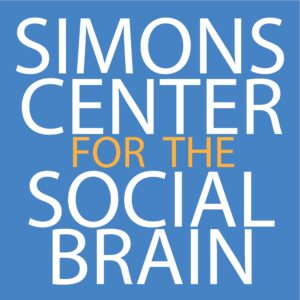
Simons Center for the Social Brain
The latest from Simons Center.
-

Whitehead Institute for Biomedical Research
The latest from Whitehead.
-

MIT School of Engineering
The latest from Engineering.
-

MIT Schwartzman College of Computing
The latest from Computing.
-

MIT Sloan School of Management
The latest from Sloan.
-

MIT School of Humanities, Arts, and Social Sciences
The latest from SHASS,
News
-
3 Questions: Phillip Sharp on the discoveries that enabled RNA vaccines for Covid-19
December 11, 2020
-
Lessons from teaching about the pandemic in real-time
May 20, 2021
-
A method to assess Covid-19 transmission risks in indoor settings
April 15, 2021
-
Model could help determine quarantine measures needed to reduce Covid-19’s spread
December 14, 2021
-
Explained: Why RNA vaccines for Covid-19 raced to the front of the pack
December 11, 2020
-
Chemists discover the structure of a key coronavirus protein
November 12, 2020
-
Combating COVID-19 with Chemistry
May 21, 2020
-
Researchers study single cells to ask why children generally fare better against COVID-19
May 21, 2020
-
Adapting Laboratory Course 9.12 (Brain and Cognitive Sciences) to a Remote Environment
May 11, 2020
-
Teaching Remotely: Physics Junior Lab 8.13/8.14
May 11, 2020
-
FDA gives emergency authorization for CRISPR-based diagnostic tool for coronavirus
May 8, 2020
-
Covid-19 calls Picower physician-scientist to assume another role: Front-line respiratory care
April 16, 2020
-
Researchers identify cells likely targeted by Covid-19 virus
April 22, 2020
-
Combating COVID-19 with Chemistry
April 21, 2020
-
3 Questions: How Covid-19 tests work and why they’re in short supply
April 13, 2020
-
An experimental peptide could block Covid-19
March 27, 2020
-
Computational thinking class enables students to engage in Covid-19 response
April 7, 2020
-
MIT Solve rises to meet health security and pandemic challenge
April 13, 2020
-
MIT Alums bring expertise to the global coronavirus conversation
April 3, 2020
-
Warmer Weather May Slow, but Not Halt, Coronavirus
March 22, 2020
-
MIT Converts Ice Rink To Coronavirus Care Center
April 16, 2020
-
‘Researching from Home’: Picower science stays strong even at a distance
April 1, 2020
-
Pinterest CEO and a team of leading scientists launch a self-reporting COVID-19 tracking app
April 2, 2020
-
A team of MIT chemists may have designed a drug candidate that can block the coronavirus
March 31, 2020
-
The U.S. Is Opening Up Access To Its Supercomputers To Beat COVID-19
March 22, 2020
Please visit How To Help if you’re interested in aiding MIT’s fight against COVID-19.